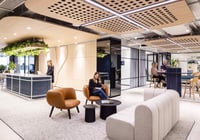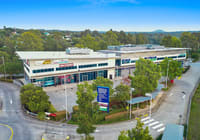
Many commercial property companies still underestimate the impact of technology: study
A large proportion of commercial real estate managers are still doubtful about the impact of new property technologies, despite billions of dollars being pumped into the industry globally, new research shows.
Many companies are starting to see ‘proptech’ as a strategic advantage, with 58 per cent of respondents to a survey by Altus Group already investing in and using technology to help make profits, rather than save money.
But only 18 per cent think augmented and virtual reality will disrupt the commercial real estate industry, while the number was just 15 per cent for blockchain and 9 per cent for driverless vehicles.
And one in five believe smart building technology will have no or only minimal impact on how they run their commercial real estate business, the survey found.
The managing director of California-based Aamidor Consulting, Joseph Aamidor, told the Smart Buildings Summit 2017 in Sydney on Tuesday that smart building technology had not yet been widely adopted because building owners did not think their existing systems were inadequate, and because it “isn’t broken”.
The built environment technology expert pointed to an example in the US where 19 school buildings in the state of Michigan were still using a Commodore 64 computer – which was released in 1982 – to manage the building’s heating system.
When asked why they weren’t using something newer, the maintenance supervisor replied “because it still works”.
“It may be a little bit of complacency, and a little bit (because) of the complexities they have to deal with,” Mr Aamidor told Commercial Real Estate.
“The complexity means you have to be really determined to figure out exactly what course to take, and if you’re a little complacent, you might kind of put it on the backburner.”
While managers were starting to see smart building technology as an advantage, Mr Aamidor said he wasn’t sure how long it would take to commit to rolling out the technologies.
He added that predictive analytics, which predicts future problems in the building, would still take another five years before it was used on a larger scale.
“(If) we can move to a point where (managers are) actually resolving issues or problems before they actually happen, that’s a good thing,” he said.
“That’s the value (of predictive analytics) and that’s the information (building managers) need to see how they can potentially do their job better.”
CBRE director of workplace strategy Nicole Fitzgerald said one common concern commercial building tenants had with smart buildings was that they could make the office redundant.
“The one (technology) that’s making the most impact (in commercial buildings) at the moment is obviously mobile-enabling technologies,” she told the summit.
The biggest technological disruptor in the workplace was being able to choose to work somewhere other than the office.
“The big question coming about is: what is the office for, if we’ve focused on creating these fabulous smart buildings but we might end up actually having quite empty buildings?”
But she noted that when speaking to tenants and occupiers, many said they still saw a purpose for the office, if it became a “real destination” with technology that employees did not have access to at home.
“The technology we’re going to put in our buildings where people change their minds and say ‘actually, (when) I go into the office, I’m going to perform better than I possibly could anywhere else’.
“I see a (stronger) imperative than ever before to think about what are the technologies that are going to make people more effective.”
GPT Group head of asset management, office and logistics Andrea Roberts said office buildings were becoming places where people wanted to be, and this was blending work and life.
“The office is so much more than a physical space that you sit in. Our view of the office should be a concierge model blended with hospitality.”
GPT owns coworking subsidiary Space & Co and aims to have 12 venues running by 2020.













